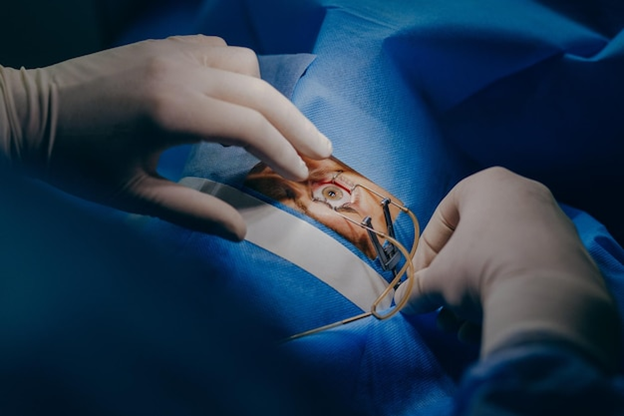Oculoplasty is a special area in eye care that improves how the eye area looks and works. This guide helps people who want to learn about oculoplasty. We want to show you what to expect when thinking about these treatments. You will find simple explanations about how these procedures can fix eye problems or improve appearance. This guide is designed for anyone, even if you know just a little about oculoplasty.
Understanding Oculoplasty
Oculoplasty involves eye surgeries that focus on both looks and function. It’s a part of eye medicine that many find helpful. It can help make your eyes and areas around them function better and look nicer. There are two main types: surgeries you need for health reasons and simple, non-surgical fixes for beauty. Sometimes, a slight adjustment without surgery can make a big difference. This way, oculoplasty offers various options to meet different needs.
Who Might Need Oculoplasty and Why?
Many people consider oculoplasty for both health and beauty reasons. For instance, you might need it if your eyelids droop, tear ducts get blocked, or you have socket issues with your eye. These can be troubling and may cause discomfort. Fixing them can improve how you see and how you feel. A well-done oculoplasty lift can make you look younger and more vibrant. This boosts confidence and can change your outlook on life. Many find new joy in activities and social settings after their procedure.
Oculoplastic Procedures Overview
There are different types of oculoplastic procedures:
- Blepharoplasty: This surgery fixes eyelids that droop or bag.
- Ptosis Repair: This helps when eyelids sag and block vision.
- Non-surgical options: Use things like Botox or fillers for small enhancements without surgery.
- Tear duct surgeries: These unblock ducts for proper tear drainage.
- Treatments for orbital disorders: These solve problems in the eye socket area.
Each has its role, and a specialist can help decide what’s best for you.
Choosing the Right Oculoplastic Surgeon
Selecting the right surgeon is vital for success in oculoplasty. Make sure they have excellent credentials and plenty of experience. If other health issues exist, the surgeon should know how to work with other specialists. This teamwork approach ensures all your health needs are covered. Always take time for consultations to create a care plan that fits you best. Discuss what you hope to achieve, so your surgeon can guide you rightly.
Preparing and Planning for Surgery
Preparation makes a big difference in surgery. Expect to have tests to check your health before any procedure. This ensures the safety and success of your oculoplasty. Be ready to make changes like quitting smoking. It’s also a good idea to talk openly with your surgeon about the results you hope for. They can give practical advice and ease any worries you might have.
Recovery and Aftercare Guidelines
Recovery varies by person and procedure. Generally, you may need to follow a healing timeline:
- Immediate aftercare includes using cold compresses and resting.
- Avoid heavy activities for a while to help healing.
Following these steps promotes good recovery. It’s also crucial to keep follow-up appointments. These check-ins ensure your recovery stays on track and address any issues quickly.
Risks and Managing Complications
Like all procedures, oculoplasty has risks. You might experience swelling or bruising, which are common. However, severe issues are rare. Your surgeon should discuss possible risks and how to handle them. Being aware and prepared gives you peace and a better experience. An experienced surgeon is essential for minimizing any complications and ensuring a smooth process.
Success Stories and Patient Experiences
Many patients find positive changes through oculoplasty. Hearing actual success stories can be comforting. Real-life experiences show how procedures enhance both appearance and functionality. Seeing others bounce back and thrive reassures those still deciding. It’s evidence that with the right surgeon and care, these procedures bring life-enhancing results.
Comparing Oculoplasty in India
India has many advanced facilities for oculoplastic surgery. Those seeking treatment can find expert care at competitive costs. Often, insurance covers some procedures, making it accessible to more people. Patients can explore diverse options locally, knowing there’s a strong network of skilled professionals to assist them. With the right choice, you can find quality care and get the support needed for eye health and aesthetics.
Throughout this guide, we discussed oculoplasty, its purposes, procedures, and considerations for those interested. Whether seeking functional improvement or cosmetic enhancement, understanding this specialty helps make well-informed decisions. The overall goal is to achieve better eye health and enhanced confidence.

